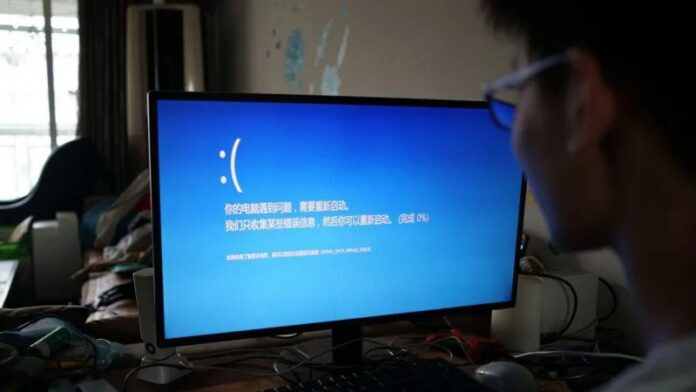While much of the world faced issues with the blue screen of death on Friday, China largely escaped unscathed, as reported by Nick Marsh for BBC News.
The primary reason is that CrowdStrike, the American cybersecurity firm, is scarcely used in China due to its vocal stance on the cyber-security threat posed by Beijing. Additionally, China relies less on Microsoft than other countries, with domestic companies like Alibaba, Tencent, and Huawei dominating the cloud services market.
Consequently, reports of outages in China were mostly limited to foreign firms. On Chinese social media, some users reported difficulties checking into international hotel chains such as Sheraton, Marriott, and Hyatt.
Over the years, Chinese government organizations, businesses, and infrastructure operators have increasingly replaced foreign IT systems with domestic alternatives, a phenomenon some analysts call the “splinternet.”
Josh Kennedy White, a cybersecurity expert based in Singapore, highlights China’s strategic handling of foreign tech operations. Microsoft operates in China through a local partner, 21 Vianet, which manages its services independently from Microsoft’s global infrastructure. This setup protects China’s essential services, like banking and aviation, from global disruptions.
Beijing’s strategy of reducing reliance on foreign systems is seen as a measure to bolster national security, similar to how some Western countries have banned Chinese tech firm Huawei and the UK banned TikTok on government devices.


